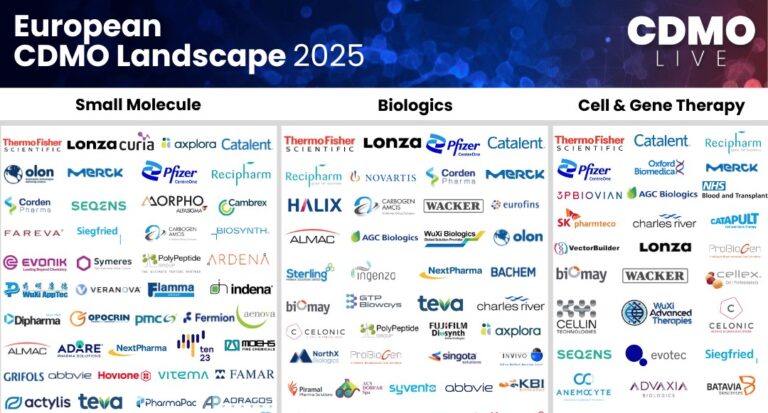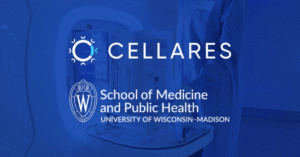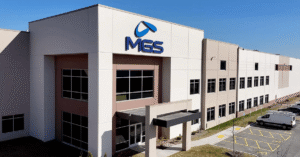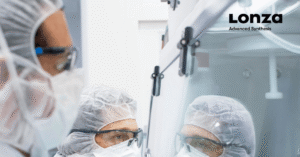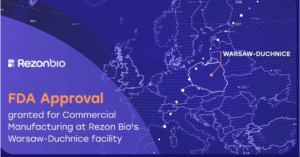- Takeda will pay Innovent Biologics $1.2 billion upfront, including a $100 million equity investment, for worldwide rights to two late-stage oncology assets outside of Greater China, with Innovent eligible for additional milestones and royalties
- The deal includes IBI363, a bispecific antibody fusion protein in Phase 2/3 development for lung and colorectal cancers, and IBI343, an antibody-drug conjugate in Phase 3 for gastric and pancreatic cancers—both have received FDA Fast Track designation

Takeda Pharmaceutical Company has entered a global strategic partnership with China’s Innovent Biologics to acquire rights to two late-stage investigational oncology medicines and an option on an early-stage program, the companies announced October 22.
Under the agreement, Takeda will pay Innovent $1.2 billion upfront, including a $100 million equity investment, for worldwide rights to IBI363 and IBI343 outside of Greater China. Innovent will be eligible for additional milestone payments, royalties, and a 60/40 profit-loss split with Takeda on IBI363 sales in the United States.
Late-Stage Assets Target High Unmet Need Cancers
The partnership centers on two investigational therapies addressing solid tumors with limited treatment options. IBI363, described as a potentially first-in-class PD-1/IL-2α-bias bispecific antibody fusion protein, is being evaluated in non-small cell lung cancer and colorectal cancer. More than 1,200 patients have received IBI363 in early studies, including patients who were refractory to PD-1/L1 therapy, according to Takeda.
The U.S. Food and Drug Administration has granted Fast Track designation to IBI363 for treating patients with unresectable, locally advanced, or metastatic squamous non-small cell lung cancer that has progressed following anti-PD-(L)1 therapy and platinum-based chemotherapy. The therapy is currently in Phase 1/2 and has three ongoing Phase 2 clinical trials, with a global Phase 3 study in second-line squamous NSCLC expected to begin in the coming months.
IBI343, a next-generation antibody-drug conjugate targeting Claudin 18.2, has shown activity in cancer and Phase 1/2 in pancreatic cancer, with more than 340 patients treated in studies to date. These cancers have among the lowest five-year survival rates. The FDA has also granted Fast Track designation to IBI343 for advanced pancreatic ductal adenocarcinoma that has relapsed or is refractory to one prior line of therapy.
Commercialization and Manufacturing Strategy
Takeda and Innovent will co-develop IBI363 globally with a 60/40 cost split and co-commercialize it in the United States with a 60/40 profit-loss split. Takeda will lead U.S. commercialization efforts and hold exclusive rights outside the United States and Greater China. For IBI343, Takeda will have exclusive development, manufacturing, and commercialization rights worldwide outside of Greater China.
Takeda intends to establish U.S. manufacturing for both investigational medicines and will have global manufacturing rights to supply IBI363 outside of Greater China, with co-exclusive rights alongside Innovent for commercial supply in the United States.
Option on Early-Stage Bispecific ADC
The agreement also includes an exclusive option for Takeda to license IBI3001, a potential first-in-class bispecific antibody-drug conjugate targeting both EGFR and B7H3. The therapy is in Phase 1 trials for locally advanced or metastatic solid tumors in the United States, China, and Australia. Innovent will be solely responsible for clinical development prior to any option exercise. If exercised, Takeda would handle global development, manufacturing, and commercialization outside of Greater China.
Strategic Rationale for Both Companies
“IBI363 and IBI343, two next-generation investigational medicines, have the potential to address critical treatment gaps for patients with a range of solid tumors,” said Teresa Bitetti, president of Takeda’s Global Oncology Business Unit. She noted the programs have potential to be transformative for Takeda’s oncology portfolio and significantly enhance the company’s growth potential post-2030.
Andy Plump, president of Research and Development at Takeda, emphasized the company’s positioning to accelerate and expand the potential of these investigational medicines, drawing from its oncology experience and expertise in the relevant modalities.
Dr. Hui Zhou, chief R&D officer for Oncology Pipeline at Innovent Biologics, said the collaboration is poised to advance development and potential commercialization of therapies featuring innovative mechanisms of action for patients with limited treatment options.
Addressing Significant Clinical Gaps
The partnership targets several areas of high unmet need in oncology. Non-small cell lung cancer accounts for at least 85 percent of all lung cancer cases, and for patients lacking actionable driver mutations who progress after immunotherapy, effective treatment options remain limited.
Microsatellite stable colorectal cancer, representing approximately 80-85 percent of all colorectal cancers, has low mutation rates that limit immune system recognition, leading to poor clinical outcomes with immunotherapy. Pancreatic cancer has a five-year relative survival rate of approximately 13 percent for all stages combined, while gastric cancer has a five-year survival rate of approximately 36 percent.
The transaction is subject to customary closing conditions, including regulatory approvals.


